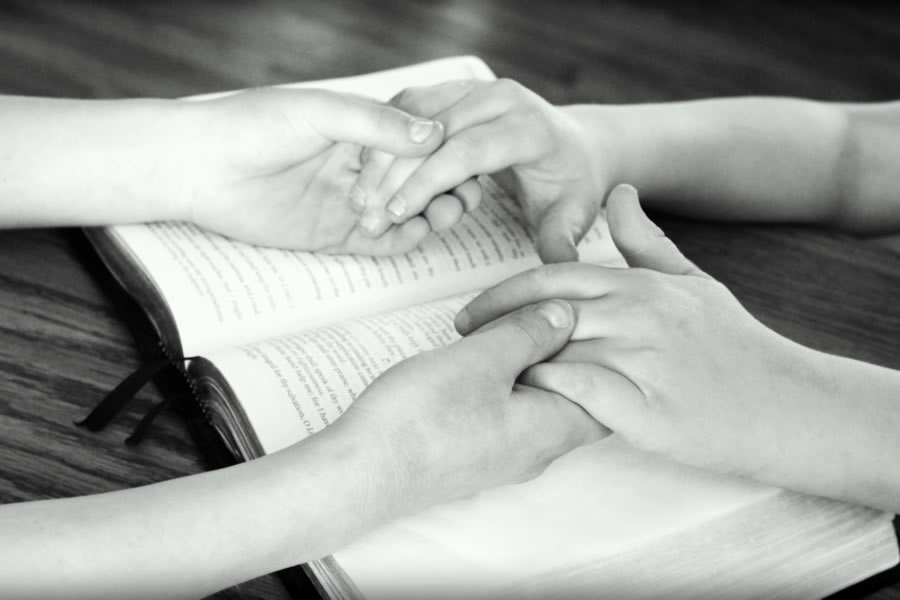
As We!
by Deacon Jeff Strom | 09/14/2023 | Images of FaithAs we reflect on the parable of the unforgiving servant, the merciless servant, we hear echoes of Scripture.
1. As in Matthew’s Gospel, “So will my heavenly Father hand you over, unless each of you forgives your neighbor from your heart.” As we forgive our neighbor, God will forgive us.
2. As we know from the Beatitudes, “Blessed are they who show mercy, for they shall receive mercy.”
3. And especially as we pray the Lord’s Prayer, “Forgive us our trespasses, AS WE forgive those who trespass against us.”
These words should haunt us and make us uneasy. AS WE!
So, Peter approached Jesus and asked him, “Lord, if my brother sins against me, how often must I forgive? Peter thought forgiving someone seven times was very merciful. But Jesus took it much further by saying, “Seventy times seven,” or 490 times, meaning an infinite number of times. God is our master to whom we owe an inconceivable debt, which he forgives in his compassion for us. So, having experienced the generous forgiveness of God, we should be willing to forgive our neighbor and become God-like through mercy and forgiveness. Mercy gives us the freedom to convert and change our lives. Justice gives us what we are due. Mercy and justice are not opposed and should work together as two sides of the same coin. St. Thomas Aquinas explained, “Mercy without justice is the mother of dissolution. Justice without mercy is cruelty.” So, in mercy, we can forgive someone who has damaged our car, while, in justice, expect them to pay for the repairs.
God’s mercy and healing are clearly seen in the absolution of sin in the Sacrament of Reconciliation. This is the work of God, the mercy and healing he wants to give. What a gift we have right there in the confessional. Working as a Board Certified Chaplain (BCC) on staff at a major hospital system, I’ve learned of other benefits of mercy and forgiveness. In the various ICUs, I usually pray, “Lord, give me the words that this patient/family/staff needs to hear.” Mercy gives us a compassionate and loving spirit toward someone suffering so we can bring them comfort and counsel. When we show mercy, the Holy Spirit gives us the gift of counsel to do and say the right thing under pressure. Author Michael Barry discovered that the immune system and forgiveness are very much connected. Forgiving likely lowers blood pressure, strengthens your immune system and reduces stress hormones. Dr. Steven Standiford, chief of surgery at Cancer Treatment Centers of America (CTCA), says that forgiveness therapy is an integral part of treatment because “It’s important to treat emotional wounds or disorders which can hinder someone’s reactions to treatment.”
As we boldly proclaim the Lord’s Prayer at Mass, remember our pivotal declaration: “Forgive us our trespasses, AS WE forgive those who trespass against us.” We want to ignore and neglect the weight of those convicting words, “as we.” It doesn’t say “as we might.” Again, these words should haunt us and make us uneasy. We are asking God to show us mercy in the same way we show, or don’t show, mercy to others. In praying this, we ask God, with our own words, to bless or condemn us. This part of the Lord’s Prayer is powerful, and our call to be merciful is strong. Do we know the self-imposed condition we place on God’s mercy? Do we understand how generous God is with his mercy? Do we try to imitate God in the mercy we show to others?
The Gospel is the revelation in Jesus Christ of God’s mercy to sinners. God doesn’t love us because we’re so good but because he’s so good. God’s divine mercy triumphs over justice. He is our victory. He is our destiny. Because of mercy, we’re walking in the light of his love. “Forgive us our trespasses, AS WE forgive those who trespass against us.” AS WE!
In Christ,
Deacon Jeff
BACK TO LIST BACK